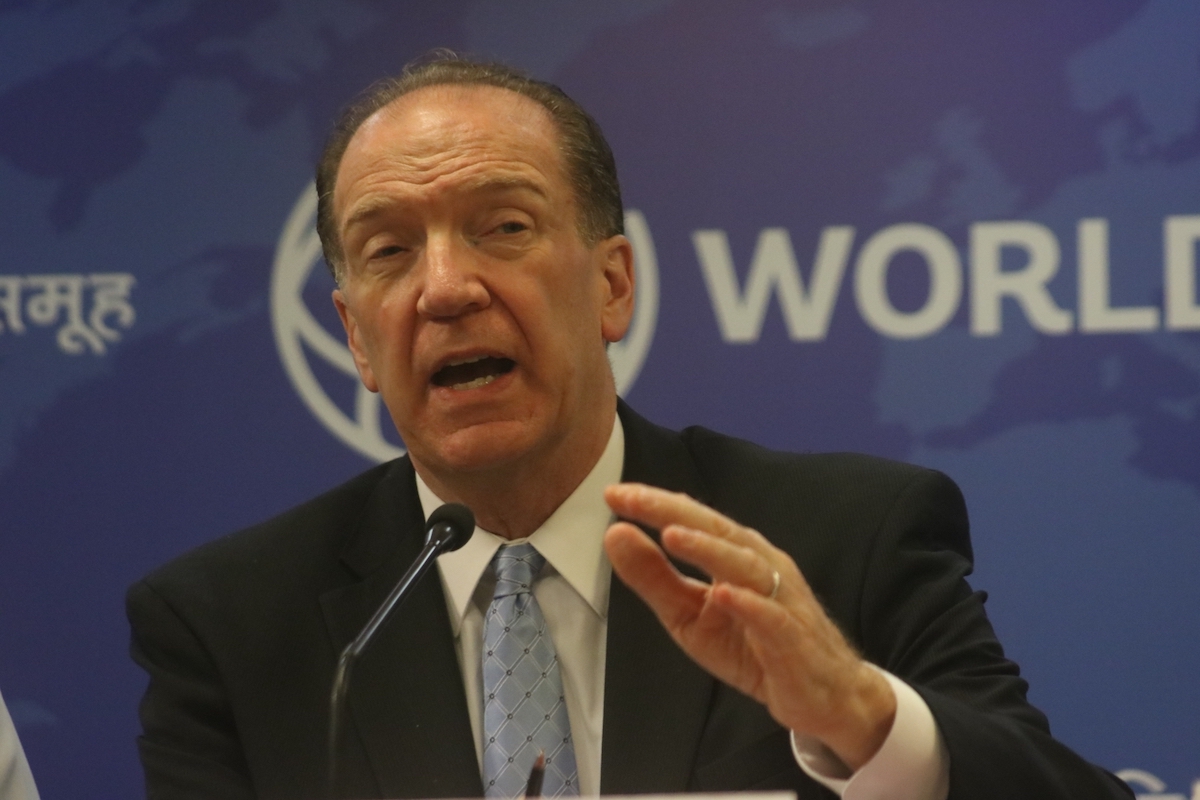Reforms in states
The first generation of fiscal reforms in the states started with the enactment of Fiscal Responsibility and Budget Management Acts (FRBMA) between 2006 and 2010 at the prodding of the 12th Finance Commission.
The World Bank has announced actions it plans to take as part of a comprehensive, global response to the ongoing food security crisis, with up to $30 billion in financing in existing and new projects.

New Delhi: World Bank President David Malpass addresses a press conference in New Delhi on Oct 26, 2019. (Photo: IANS)
The World Bank has announced actions it plans to take as part of a comprehensive, global response to the ongoing food security crisis, with up to $30 billion in financing in existing and new projects.
The bank said on Wednesday in a statement that the financing in areas such as agriculture, nutrition, social protection, water and irrigation will be available for implementation to address food insecurity over the next 15 months, Xinhua news agency reported.
Advertisement
It will include efforts to encourage food and fertiliser production, enhance food systems, facilitate greater trade, and support vulnerable households and producers.
Advertisement
The World Bank is working with countries on the preparation of $12 billion of new projects for the next 15 months to respond to the food security crisis, according to the statement.
In addition, the World Bank’s existing portfolio includes undisbursed balances of $18.7 billion in projects with direct links to food and nutrition security issues, covering agriculture and natural resources, nutrition, social protection, and other sectors.
“Food price increases are having devastating effects on the poorest and most vulnerable,” said World Bank Group President David Malpass.
To inform and stabilise markets, it is critical that countries make clear statements now of future output increases in response to the Russia-Ukraine war, he added.
He urged countries to make concerted efforts to increase the supply of energy and fertiliser, help farmers increase plantings and crop yields, and “remove policies that block exports and imports, divert food to biofuel, or encourage unnecessary storage”.
Advertisement